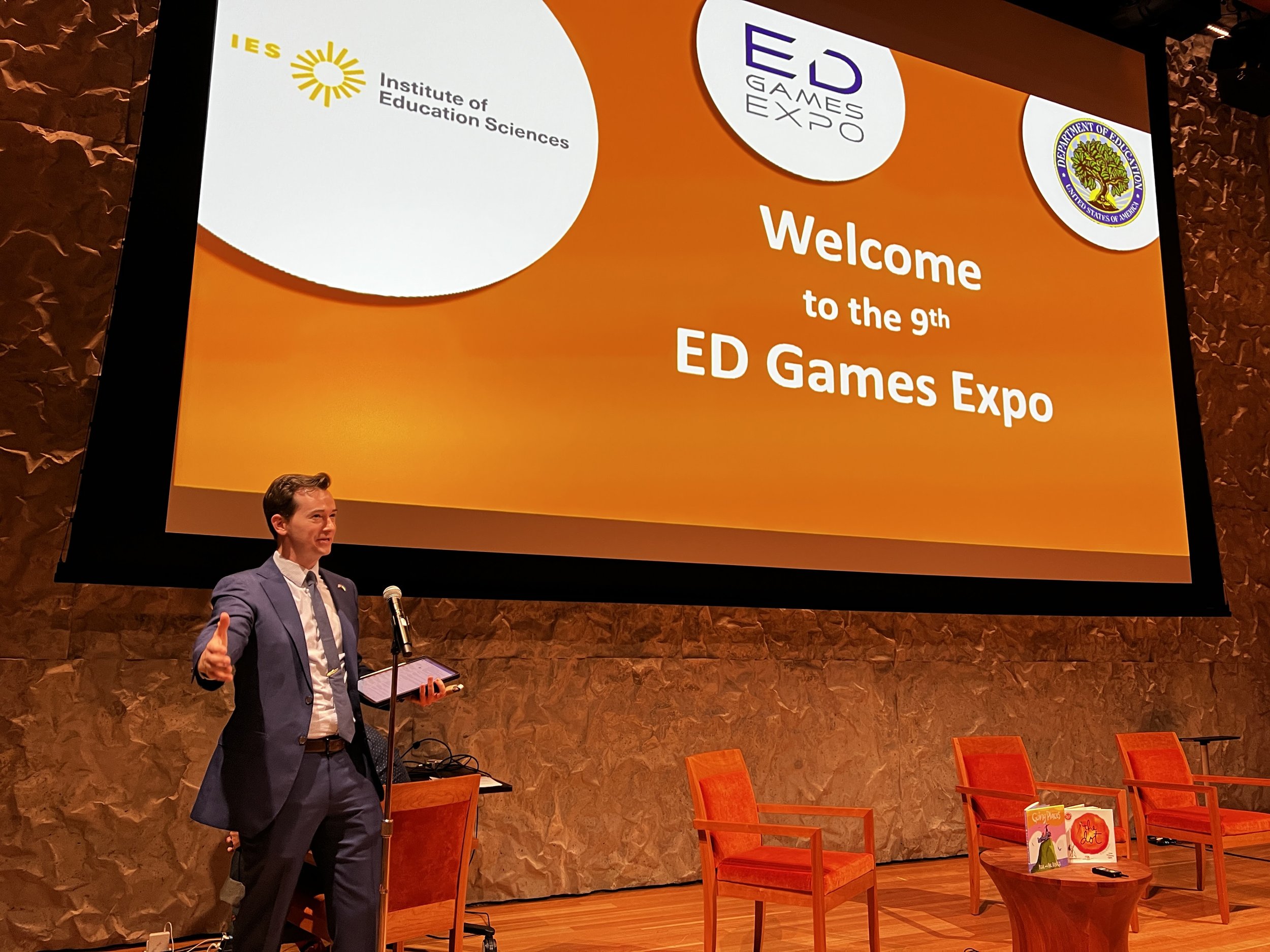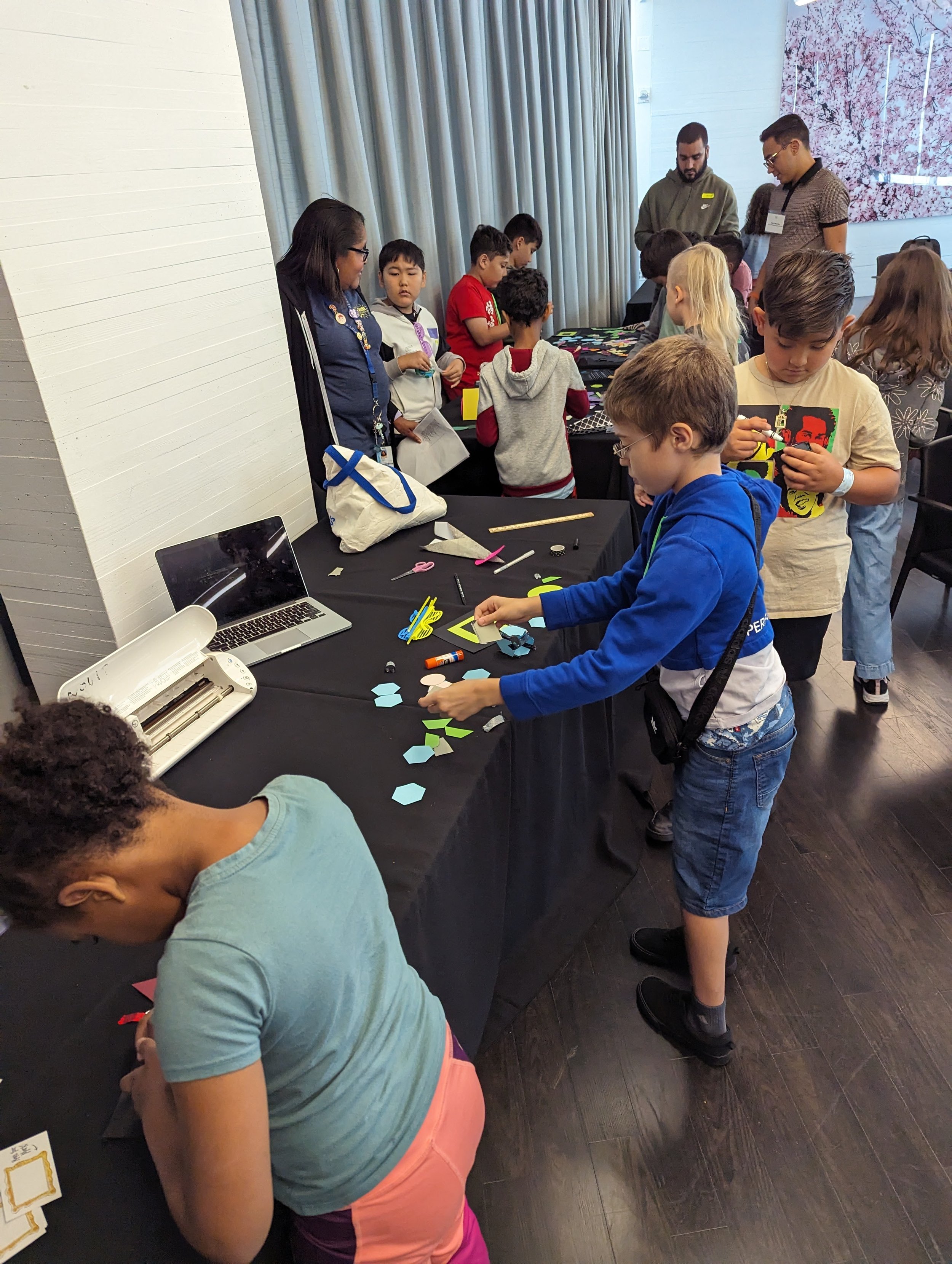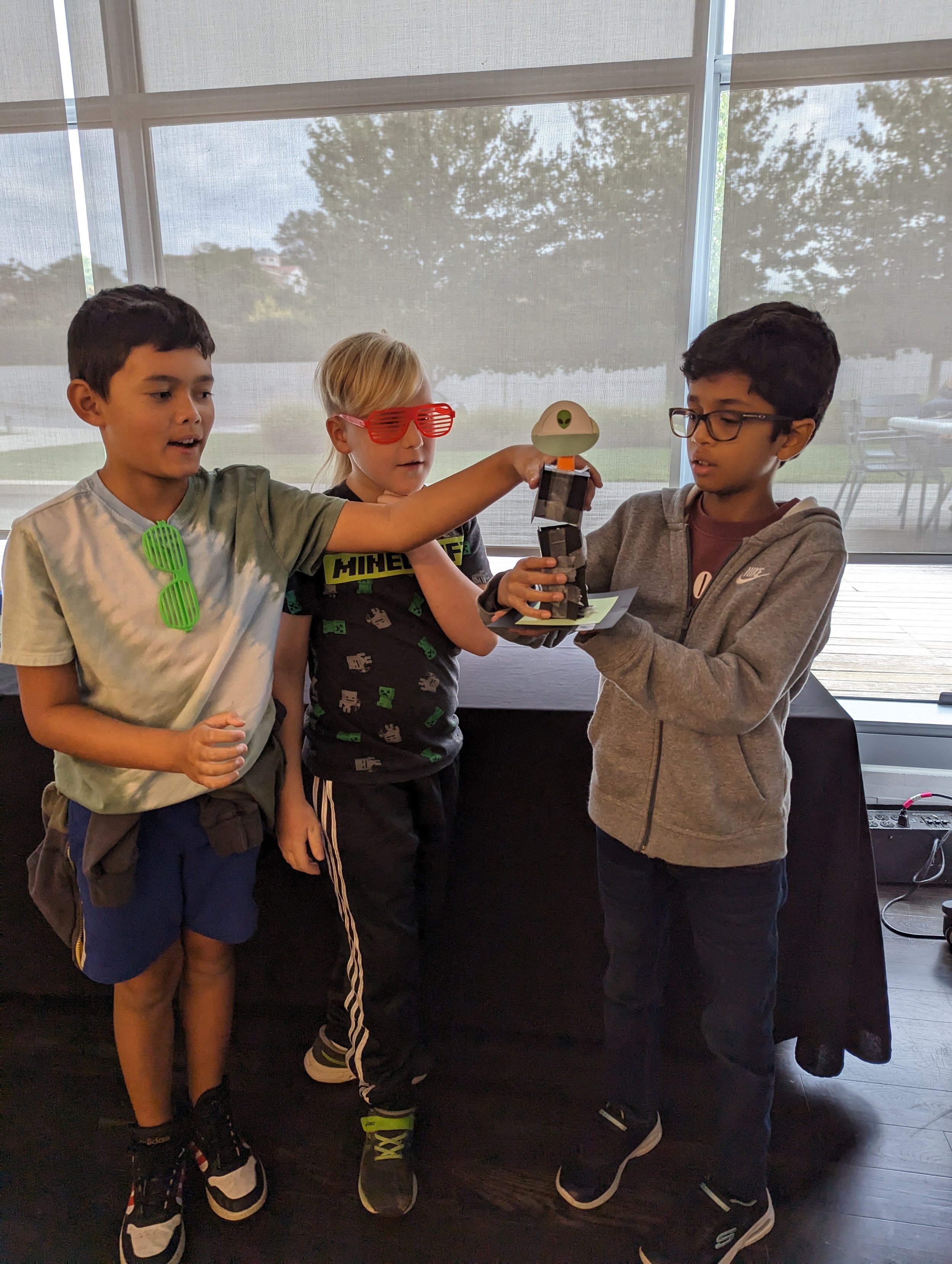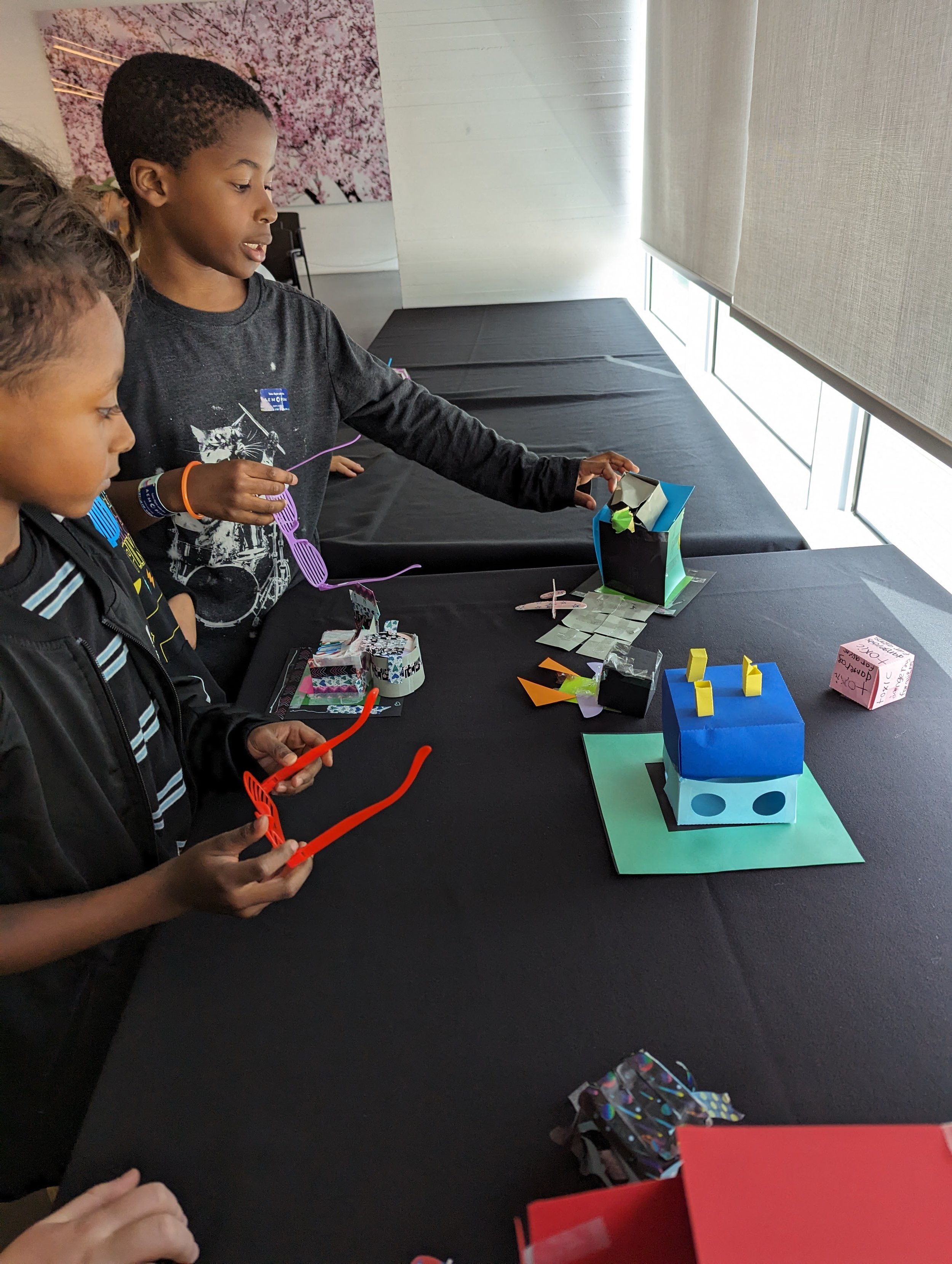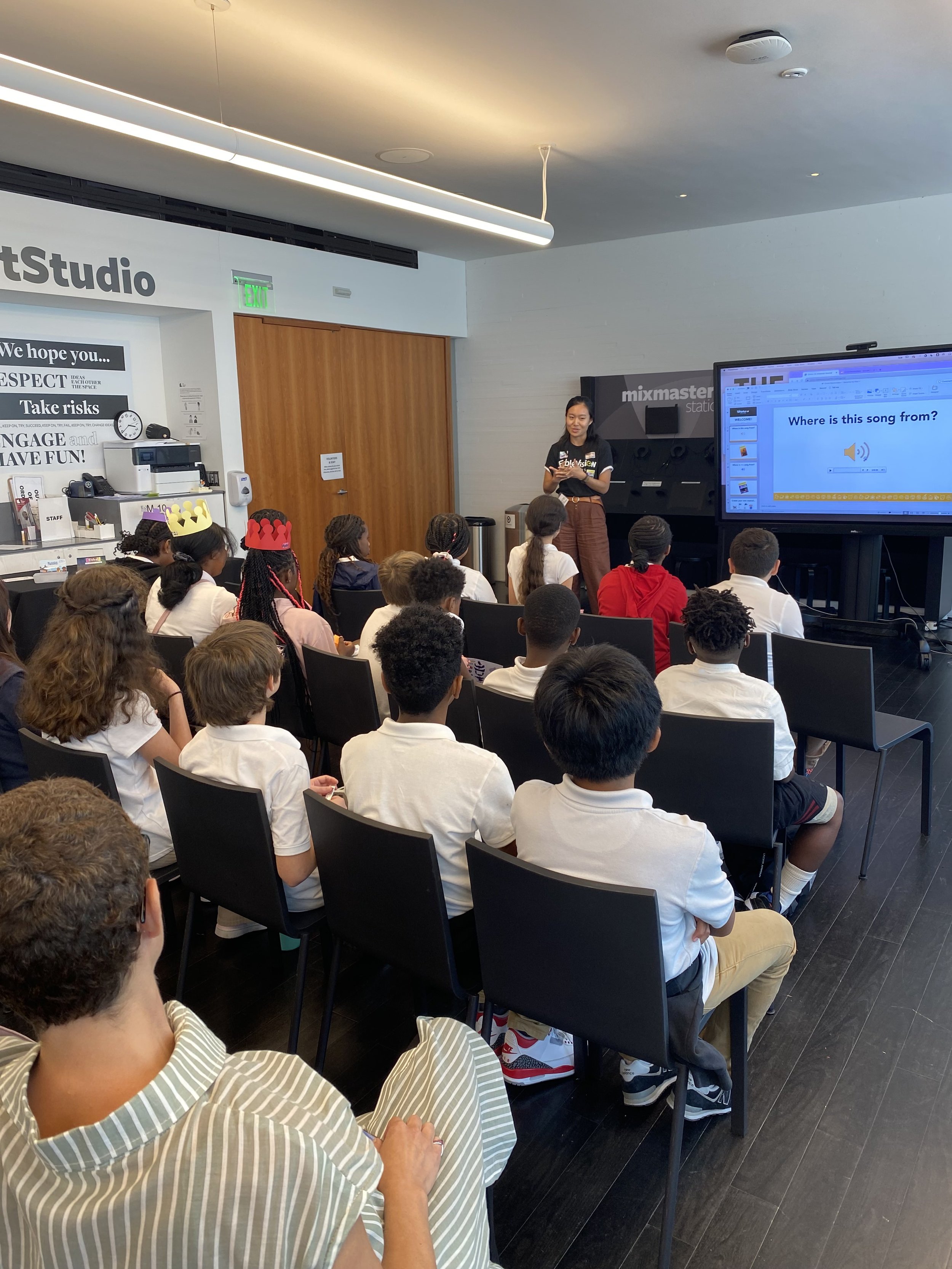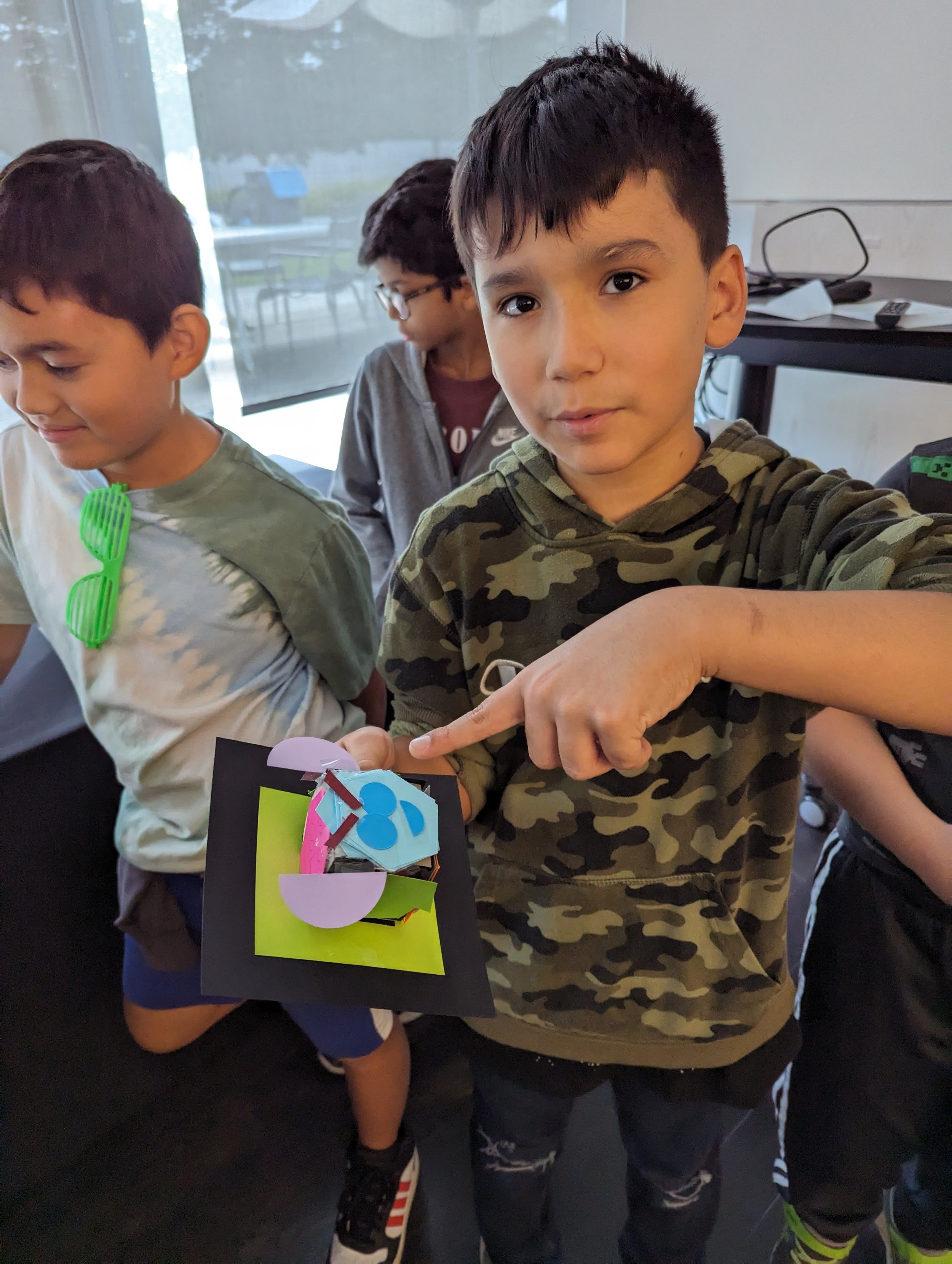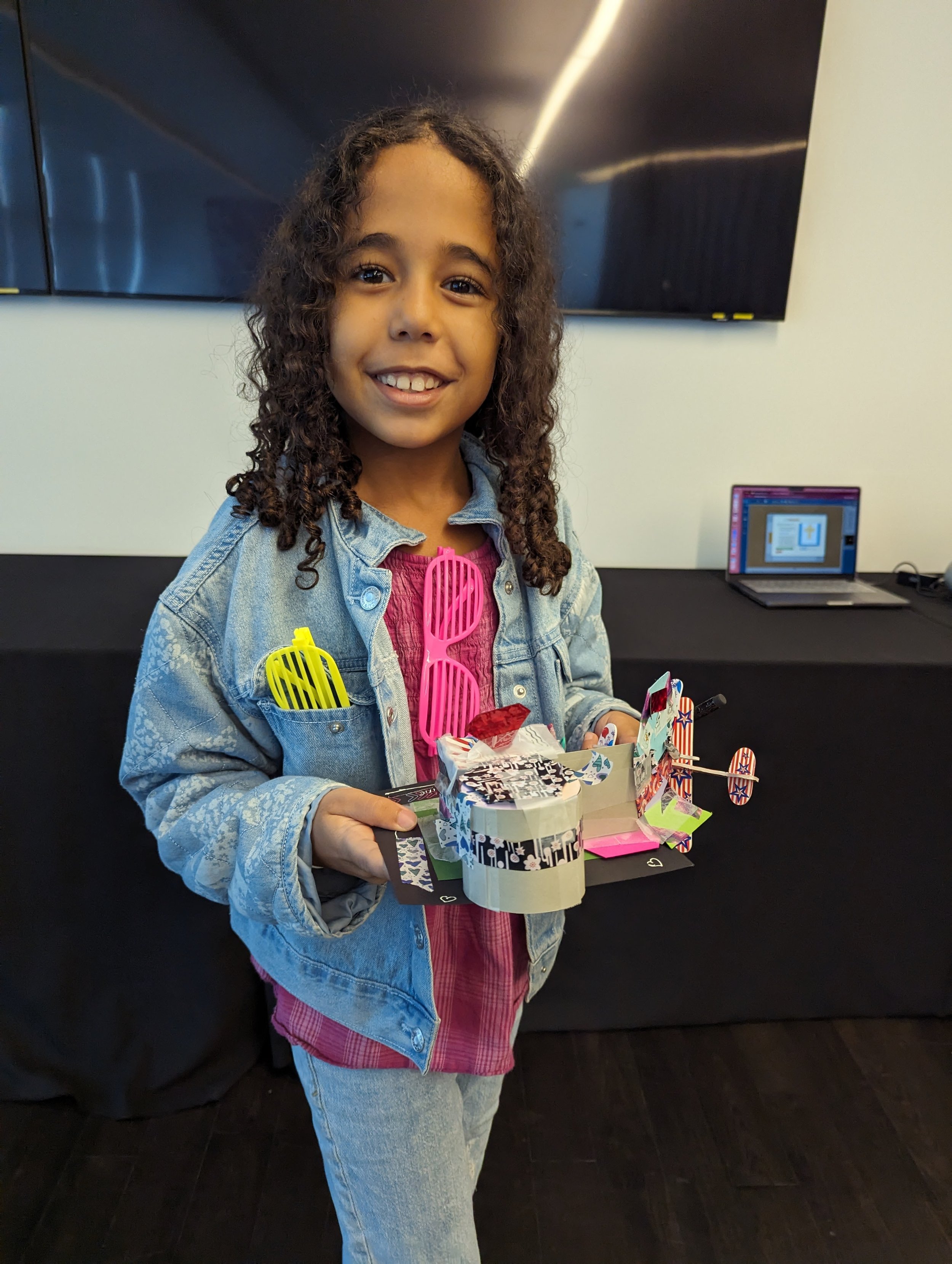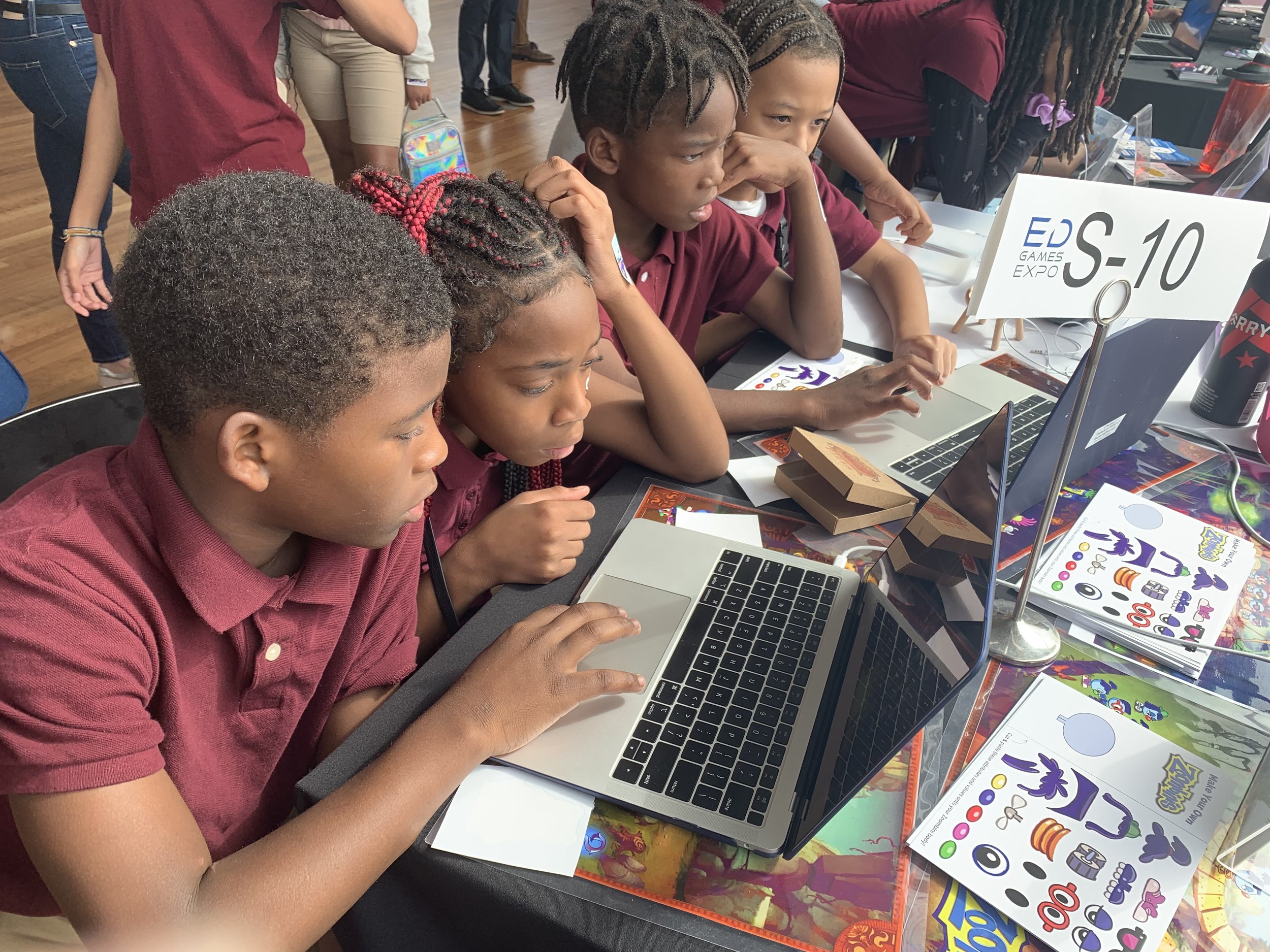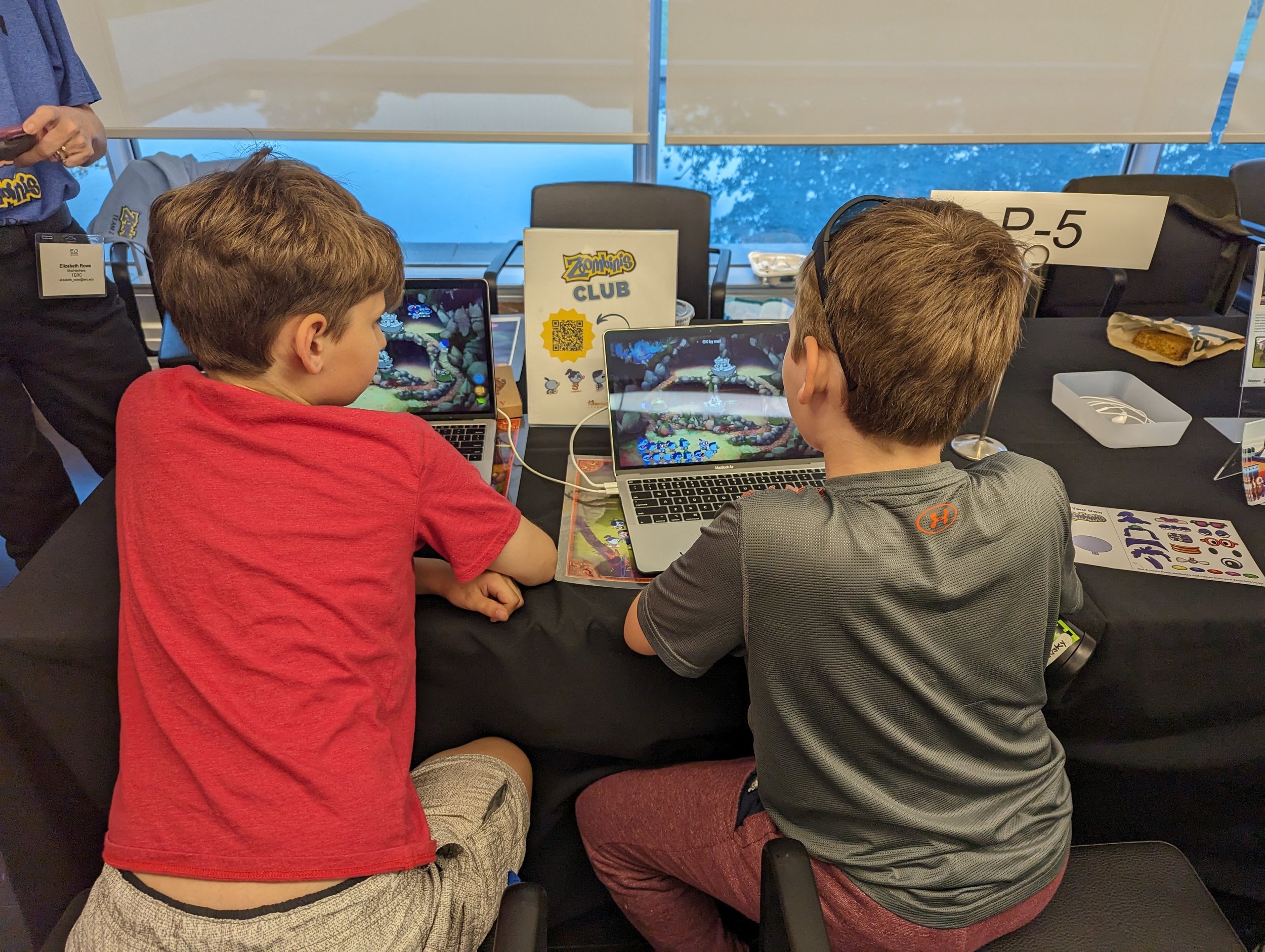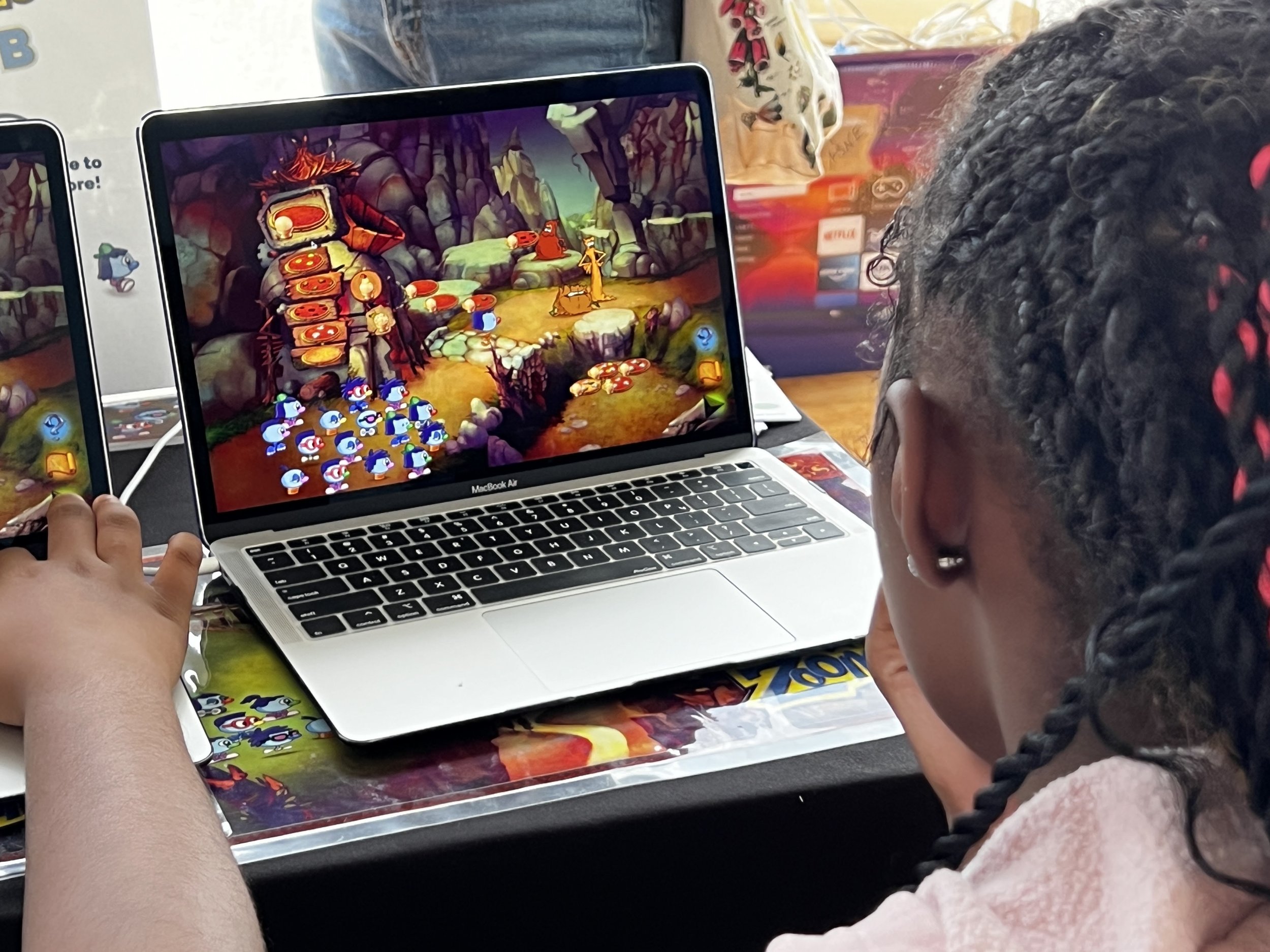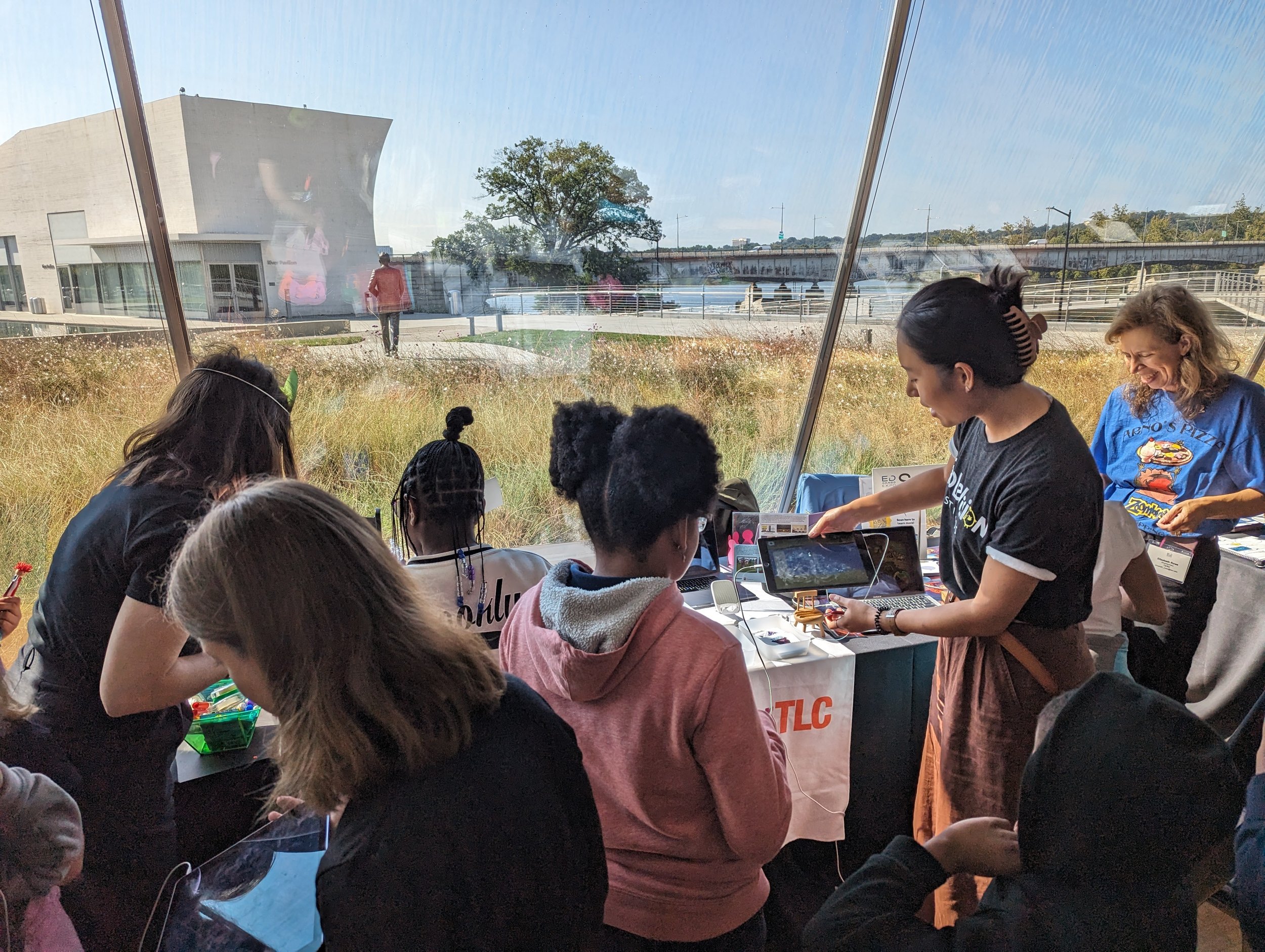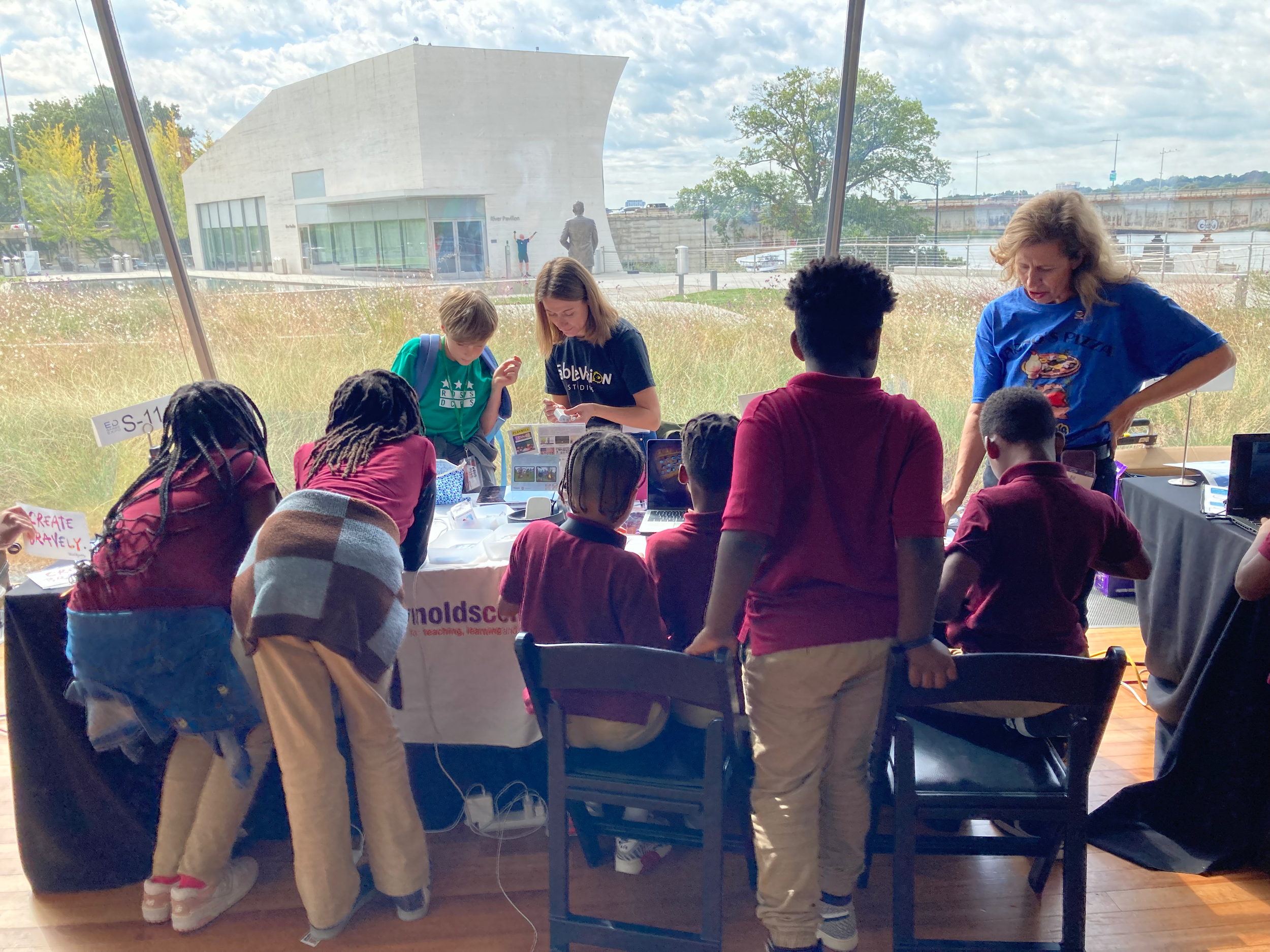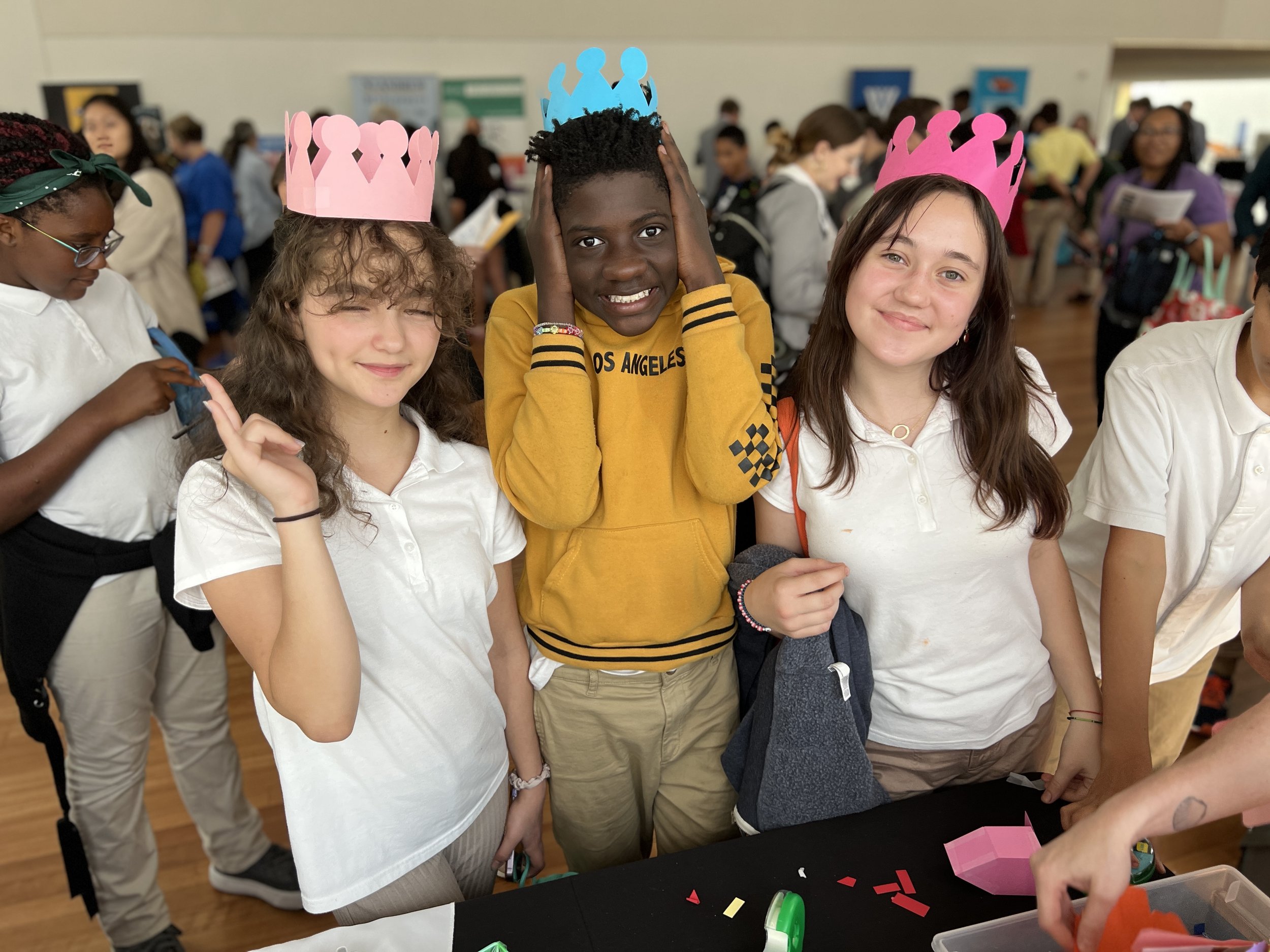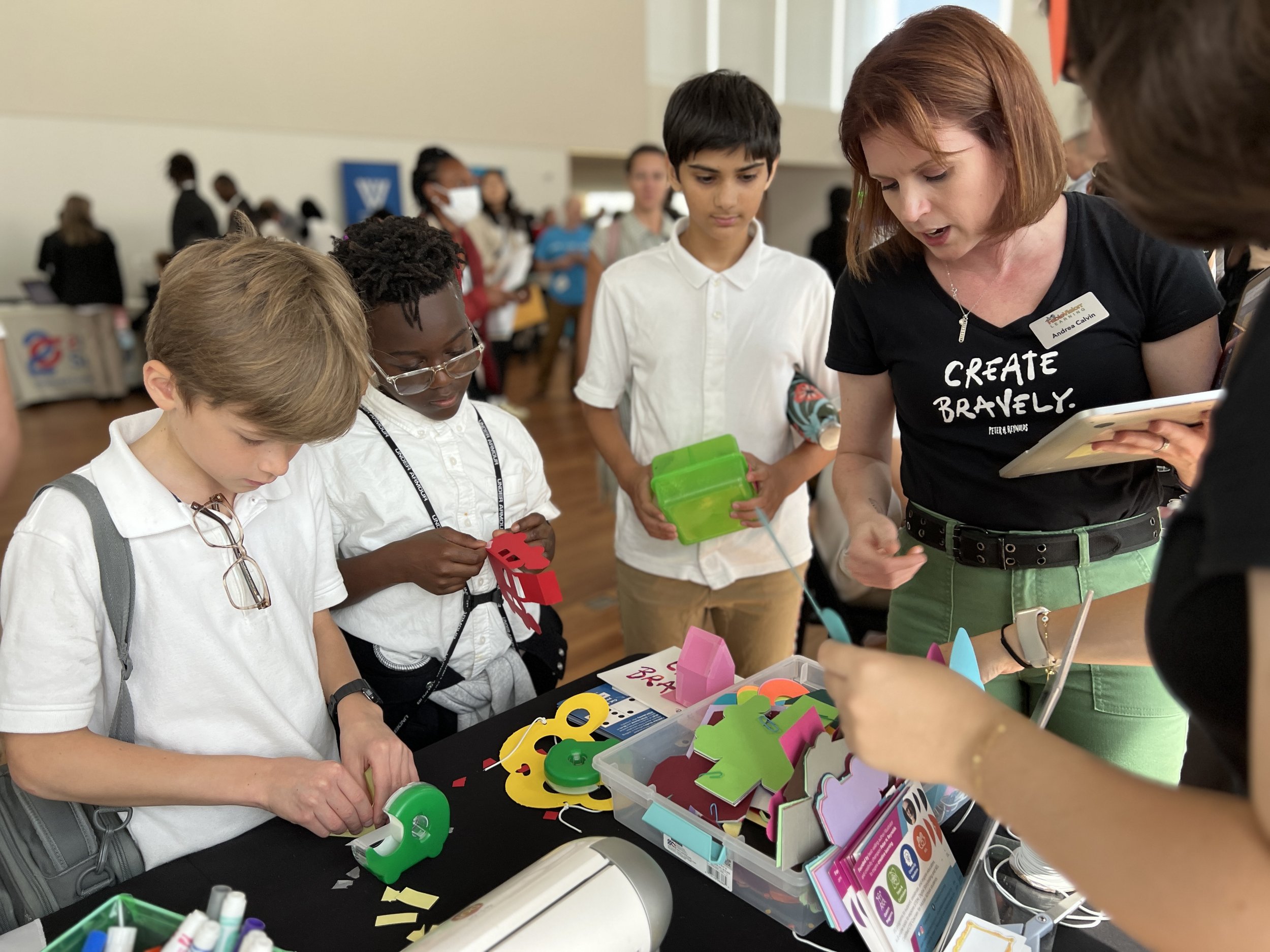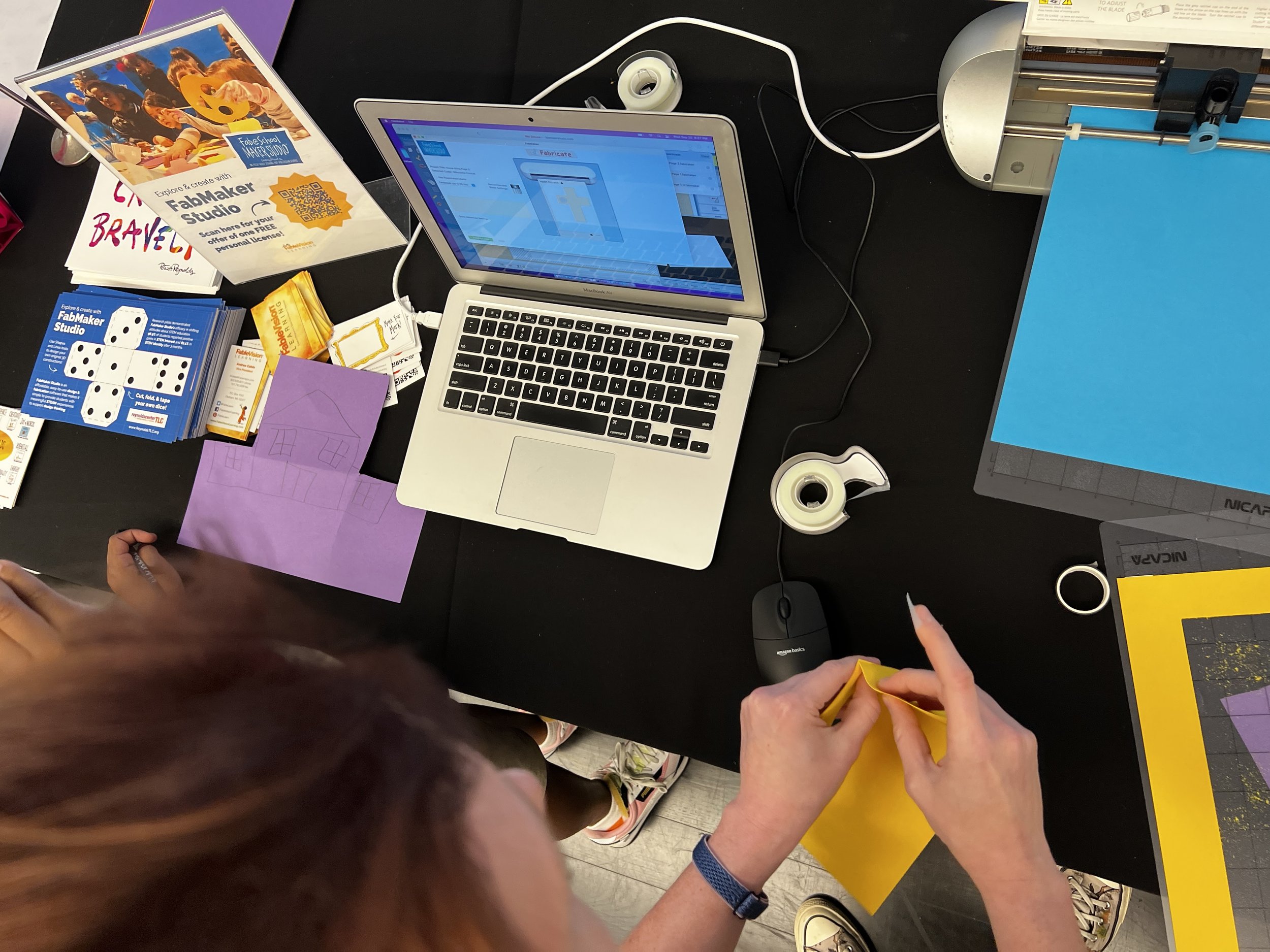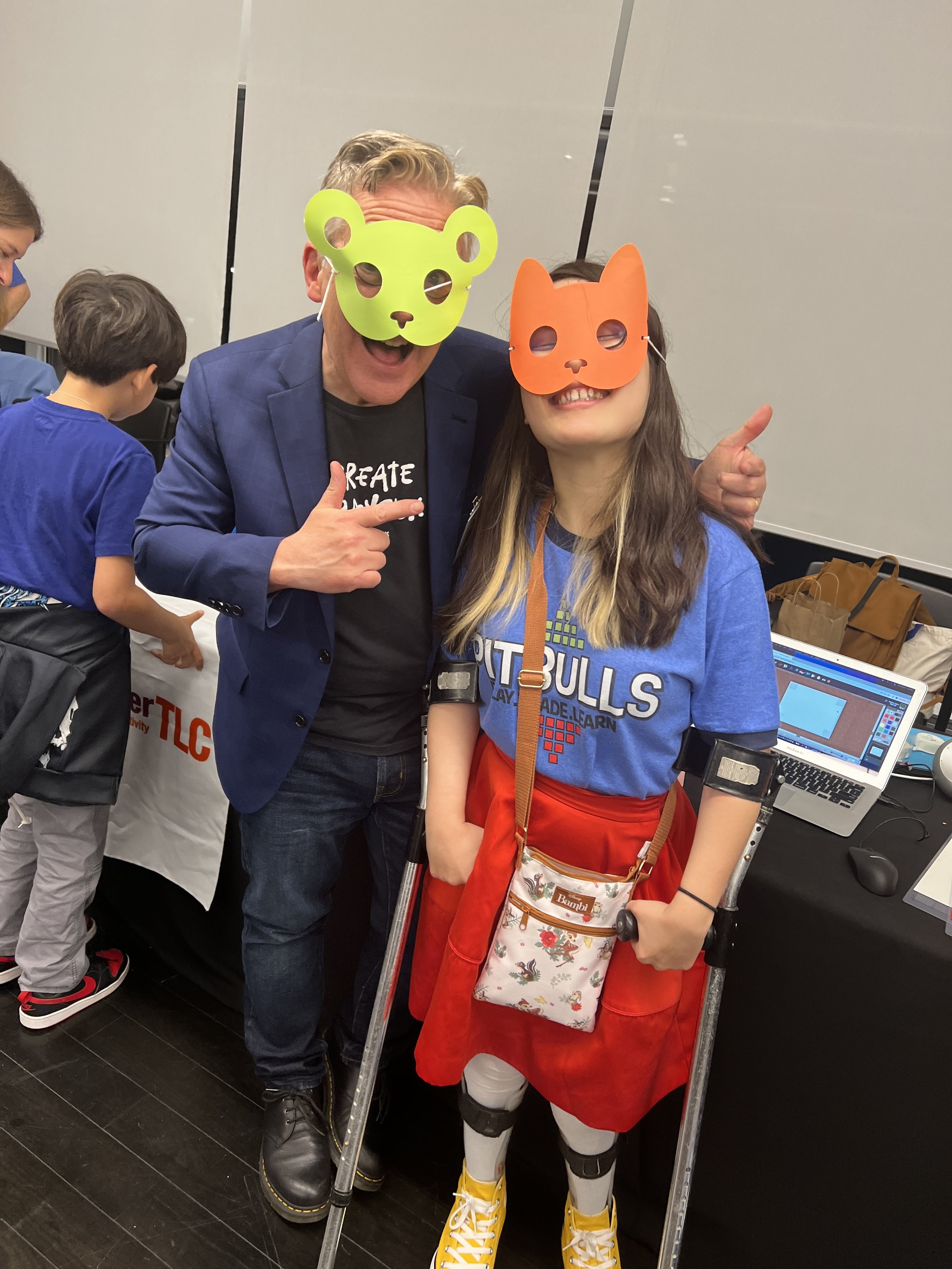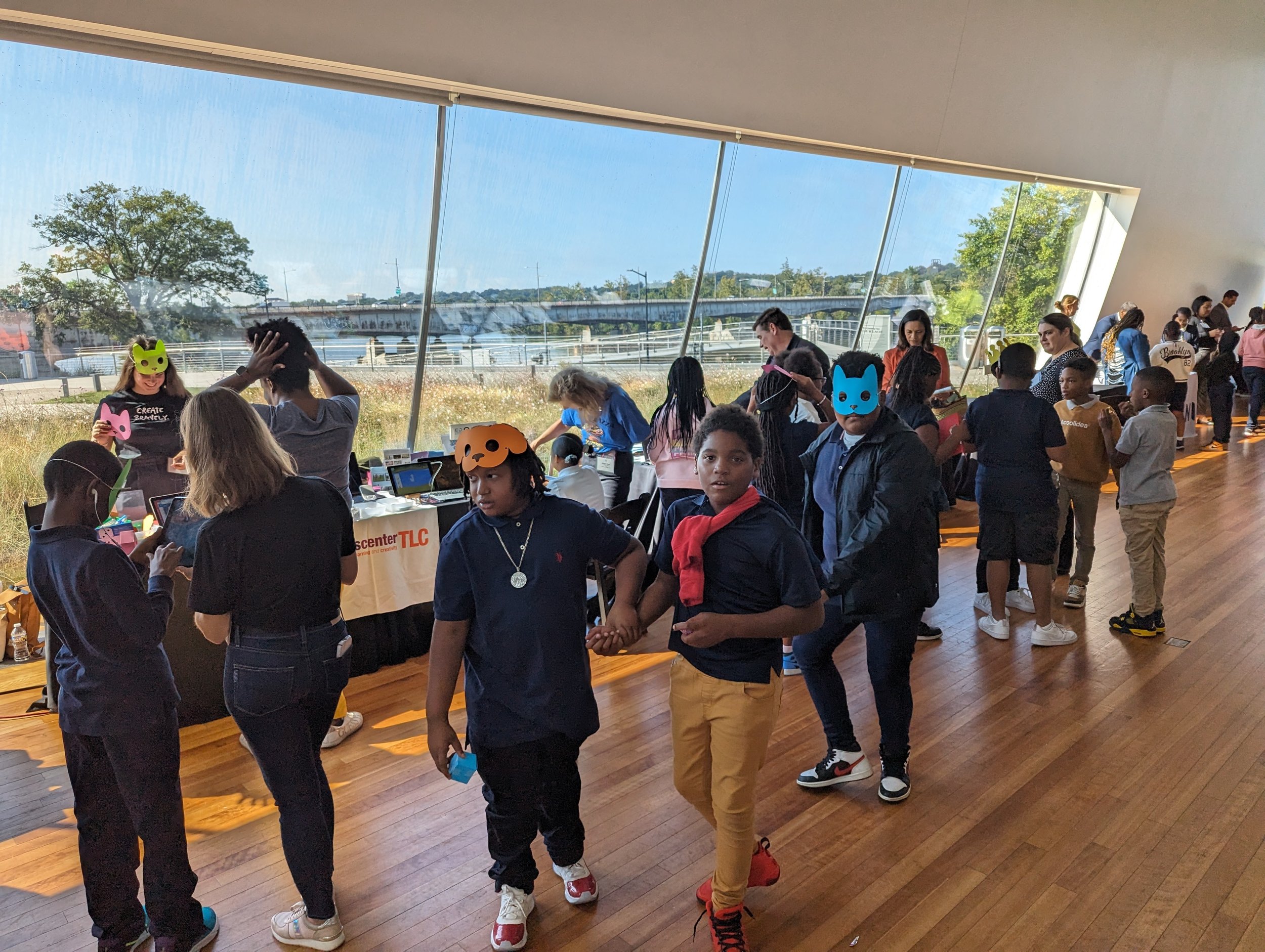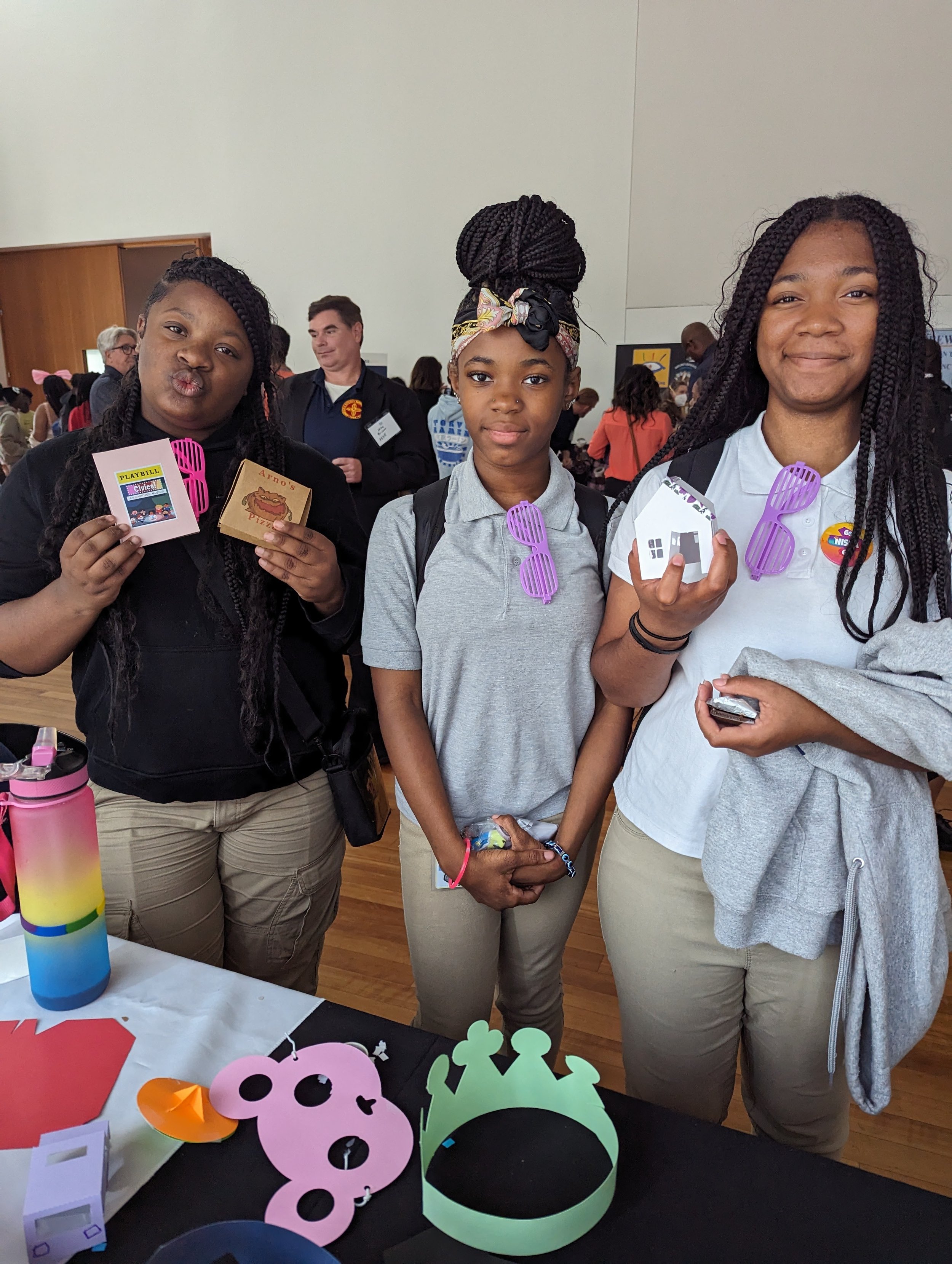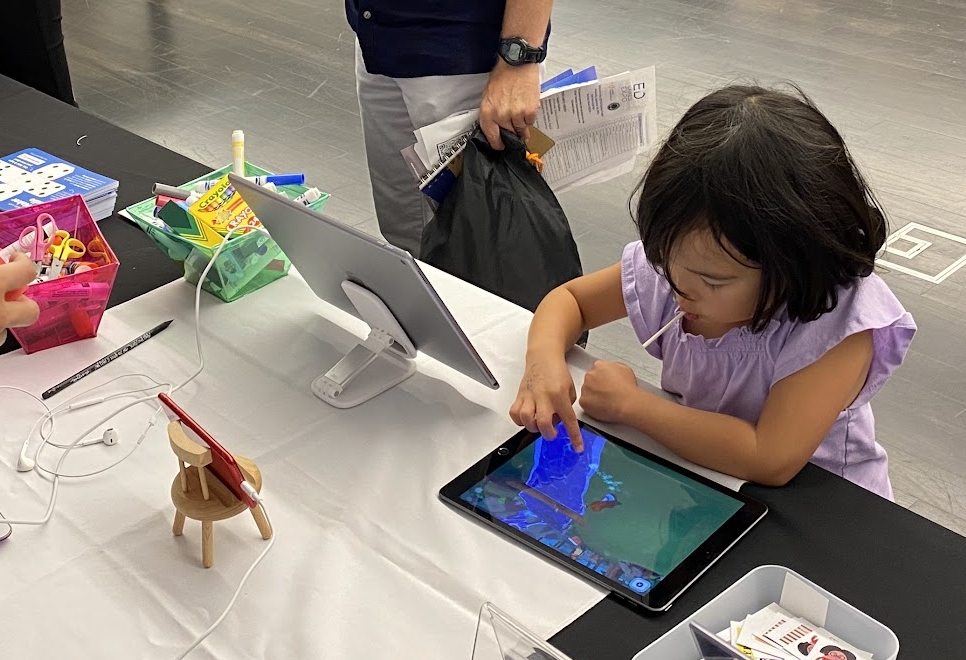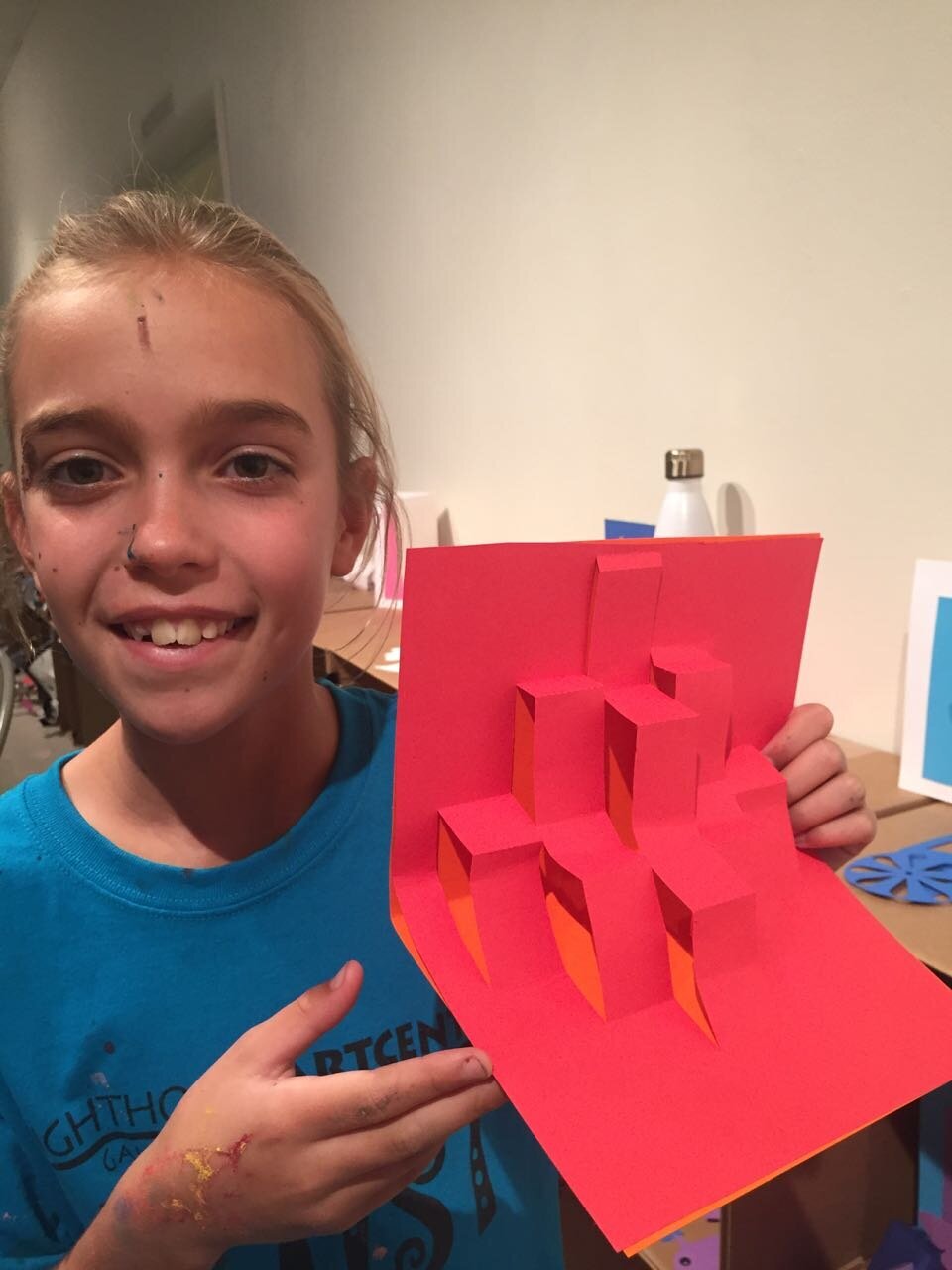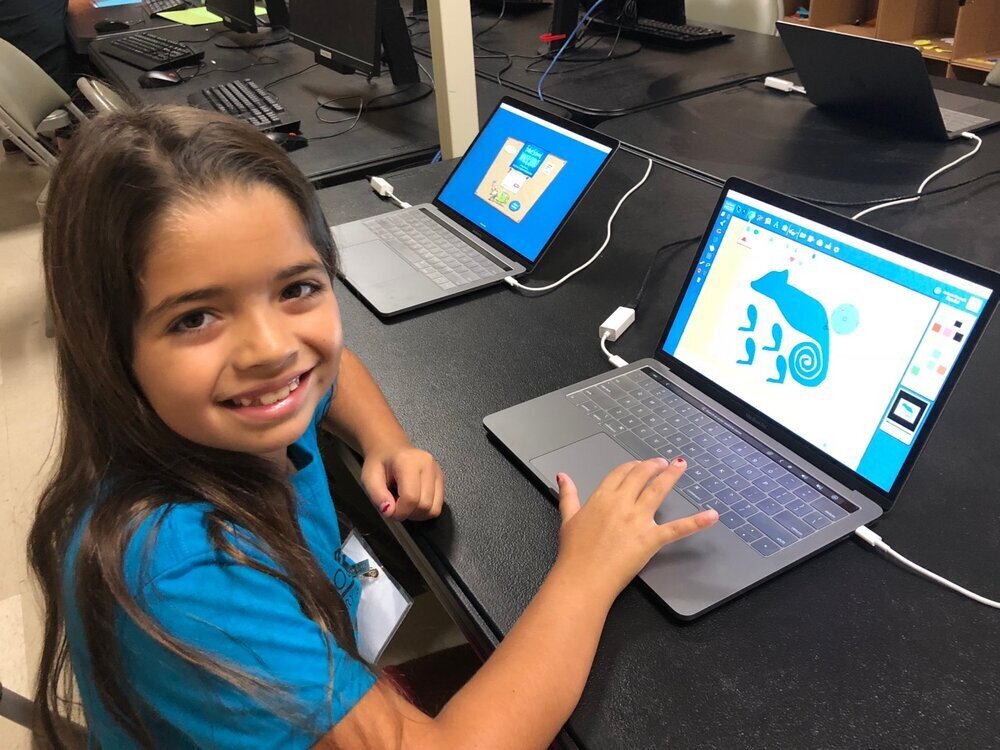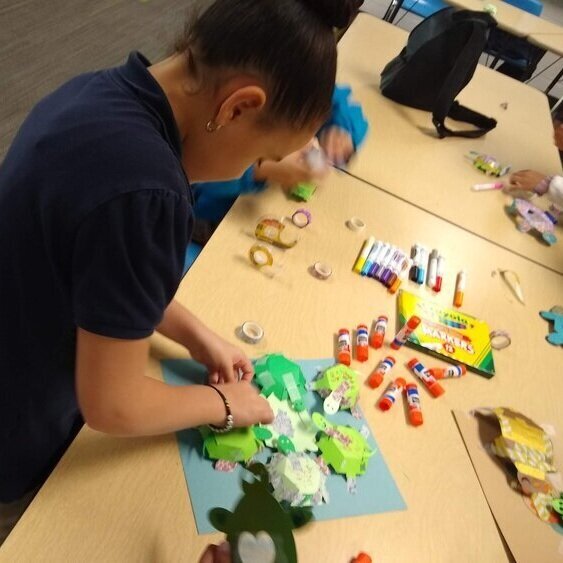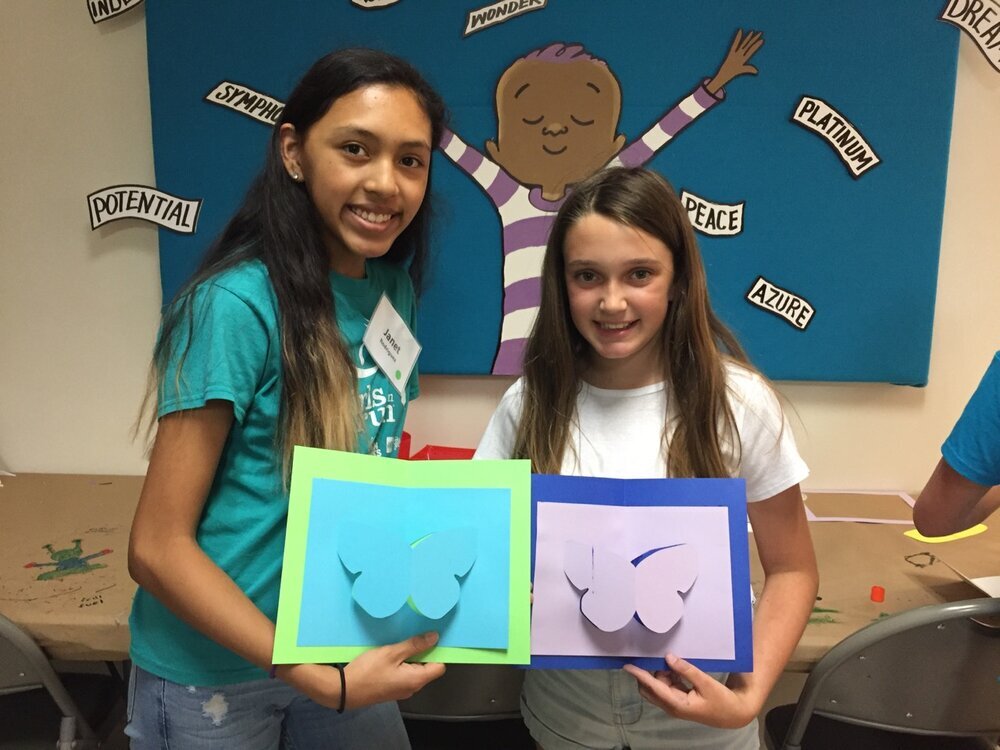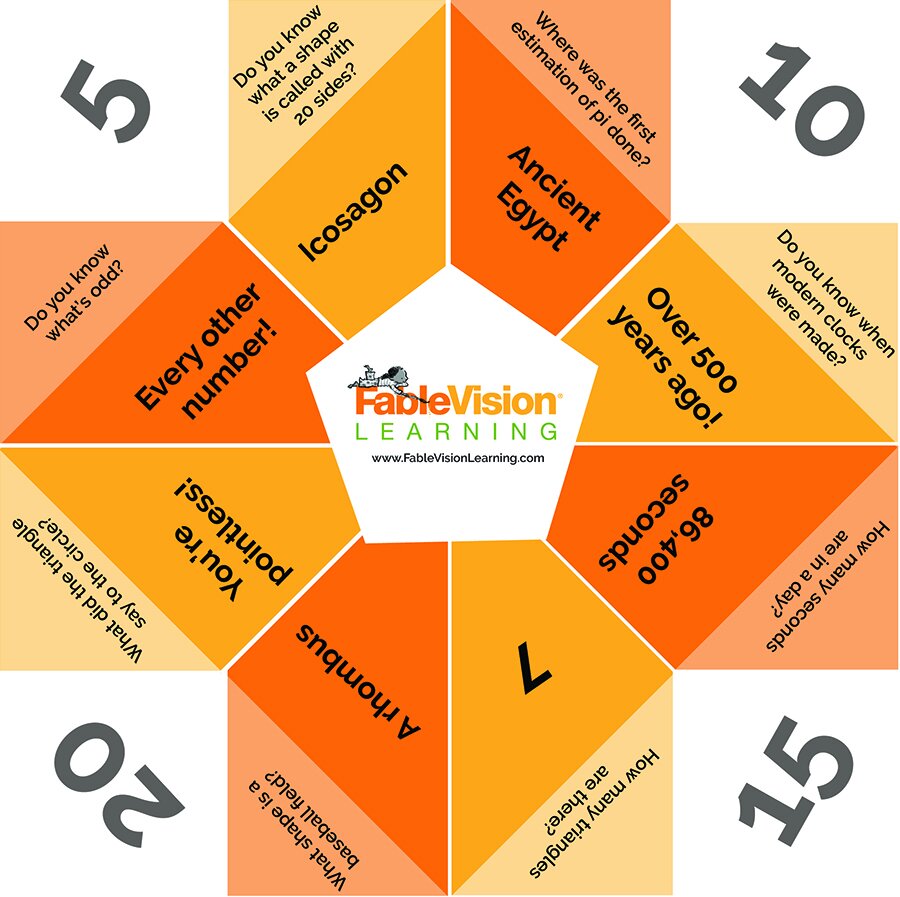FableVision Learning Spotlight Blog
Categories
- Animation-ish 42
- Books 21
- Civics! 2
- Classroom Spotlight 17
- Conferences and Events 20
- Creative Educator 3
- Creativity 25
- Distance Learning 13
- Dot Day 22
- FabClassroom 28
- FabFriday 19
- FabMaker Studio 66
- FabMaker Studio Classroom 13
- FableFive 7
- FableVision Games 3
- Free Educator Resources 36
- HUTCH 1
- Home Activities 5
- In the Classroom 34
- In the News 11
- International Dot Day 23
- Ish 1
- Library 1
- Mapping the World by Heart 7
- Paul Reynolds 10
- Peter H. Reynolds 54
- Professional Development 9
- STEM/STEAM 20
- Storybook Academy 2
- Teacher Spotlight 14
- The Dot 17
- The North Star 2
- Words and Their Stories 1
- Zoombinis 3
FableVision/Reynolds Center Celebrates Creativity at the ED Games Expo
FableVision/Reynolds Center Celebrates Creativity at the ED Games Exp0
From engineering a building that could withstand an alien invasion to rescuing Zoombinis to crafting a hit broadway musical about the national parks to exploring the culture of the Sugpiaq tribe in Alaska, the 9th annual ED Games Expo in DC was fueled by creativity and FableVision Games.
FableVisionaries Paul Reynolds, Andrea Calvin, Mary Johnston, Nadya Karpova, Snow Dong and Elizabeth Rowe from TERC worked with students from the DC area as they explored the different learning games on Wednesday, Sept. 20 at the John F. Kennedy Center for the Performing Arts REACH Center.
The ED Games Expo is a showcase of game-changing education technology innovations developed through programs at the Institute of Education Sciences, the U.S. Department of Education, and across government. FableVision/The Reynolds Center was invited to highlight several of their tools including: Zoombinis, FabMaker Studio, Civics: An American Musical and Nunaka.
At the event students got hands-on with the tools in the larger expo where specific classes were invited to join a one hour master class either using FabMaker Studio or Civics.
The following day, FableVision/Reynolds Center co-founder and CEO Paul Reynolds and vice president Andrea Calvin shared about FabMaker Studio at ScIC13: Science is Cool 13 UnConference. You can check out the replay here.
Celebrate International Day of Math with FableVision: Where Creativity Counts
You may not realize it, but you use math every single day! From cooking dinner to telling time, your brain is constantly busting equations. That’s why we are going to celebrate math this Pi Day, March 14.
Fast Fact: In 2019, United Nations Educational, Scientific and Cultural Organization (UNESCO), declared March 14 as the International Day of Mathematics. Since 3.14 is also the beginning of pi, it is double the celebration!
Check out some of the ways we are celebrating this year.
Explore Game-based Learning with Math
Studies have shown that game-based learning can improve skills in STEM, math, literacy and more. This is why we are so excited to share these two researched-based online games designed to give educators an unique opportunity to teach through gameplay. The two games we’ll be playing are Zoombinis and Cyberchase Fractions Quest!
Zoombinis
Students travel across the Zoombinis landscape ast they solve a series of 12 puzzles that encourage computational thinking (CT). Through pattern recognition, abstraction, problem decomposition and algebraic thinking, your learners will lay the foundation for CT while leading the little blue guys to safety.
Grade level: 3-8
Cyberchase Fractions Quest
Take your learners on an epic journey across the universe to save the Cybersquad by solving equations. Whether it’s dividing leaves into parachutes for chameleons or estimating fractions on the Estimatron-5000 number line, students practice their fractions in various contexts. After traveling planet to planet, your learners will be expert fraction busters!
Grade level: 3-5
FabMaker Studio
Math isn’t just solving equations, it’s also using your creativity! FabMaker Studio, our digital fabrication and design software allows your students to get creative while getting a hands on experience as being an engineer! Here are a few ideas to get you started:
Use shapes and lines to build 2D, 3D projects.
Create a pop-up card with a special shape to give to your friends.
Ready to Create: Download our FabMaker 3D pyramid design to get started.
Animation-ish
No matter what age your students are, Animation-ish is a great way to combine math and creativity. Educators can get in on the fun too by using their unique designs to teach new mathematical concepts and ideas.
In the second level of Animation-ish, students can create a flipbook filled with as many numbers of pi as they can remember, or practice their pythagorean theorem with an animation. Try making your own story with some fun shapes and numbers.
Enter the Poster Challenge
For 2021, International Day of Math has challenged classrooms to create a poster “that shows one way to make the world a little bit better using mathematics.” To learn more this challenge and how to register your classroom click here.
Click on the image below to download our design.
Bonus Project
We love to catch facts. Click on the image below to download and create a Math Catcher filled with fun math facts!
Share your International Day of Math creations with the FableVision Learning team via Twitter or Instagram @FableLearn, or via email: info@fablevisionlearning.com.
Utilizing Research-Based Online Math Games for Remote & Blended Learning
2020 has been a year marked by teachers who faced challenges through embracing creative innovations and connections, alternative teaching practices - and learned that Zoom was more than a PBS TV Show.
As educators seek new methods to ensure their students don’t fall behind during COVID crisis, there is special attention being paid to new ways to approach math education. Education Week’s Executive Project Editor Liana Loewus wrote in a recent article, that teachers are “ditching answer-getting math tests, which invite cheating, in favor of assessments that ask students to explain how they reached a solution, often using videos or photos. They’re turning to digital math games and apps, which experts caution are uneven in quality, to supplement instruction.”
Shayl Griffith, an assistant professor at Florida International University in Miami, concurs. As reported in a recent review paper published in the Journal of Pediatrics many of the currently available digital math games and apps haven’t been tested. Griffith notes, “School districts and even parents at home are going to be having access to programs and games that don’t have the evidence behind them yet.”
Indeed, not all math games are created equal. There is a critical need for vetted, researched-based tools - combined with formative assessment and evidence of learning.
That’s why FableVision is particularly happy to announce that we’ve done just that with the launch of FableVision Games - where we are curating a carefully-selected collection of research-based learning games that have proven efficacy. The online platform expands students’ learning experiences and supports teachers and administrators in making classrooms and remote instruction more engaging and accessible - and easier to manage with embedded, formative assessment tools.
FableVision Games is dedicated to providing classrooms with best-in-class, game-based learning, along with customized professional development to integrate the games into curricula. “For some teachers, adding game-based learning is a new experience, so we’ve developed a lot of resources to support implementation and to support formative assessment to show how these games are moving the meter,” FableVision’s CEO Paul Reynolds shares.
FableVision Co-Founder Gary Goldberger explains, “FableVision has been providing development and thought leadership around game-based learning and research for over a decade, so we’re thrilled to create a safe harbor for quality games - in a way that makes it easy for teachers to make available to their students and to provide evidence of growth while students are learning - and enjoying themselves.”
For further reading: Digital Math Games and Apps: What Works and What Doesn’t? (Education Week), Games with impact, Psychology-savvy video games address health education and social-emotional skills (American Psychology Association), and Apps As Learning Tools: A Systematic Review (Pediatrics).
LEARN MORE
Two of the first learning math games now offered by FableVision Games:
Cyberchase Fractions Quest
Grades: 3 – 4
Blast your students’ fractions skills into Cyberspace with Cyberchase Fractions Quest, now available for classroom play. Experience the world of PBS KIDS’ popular math series Cyberchase. Third and fourth-grade students embark on an immersive journey that integrates an interactive adventure with a research-based approach to fractions contexts.
Cyberchase Fractions Quest is a result of a 2.5-year-long research project as part of the IES Department of Education SBIR program. The game also features additional professional development and game integration resources that are fully customizable to each classroom’s needs, allowing for maximum fractions learning fun and success.
Formative assessment and cumulative review are also embedded in the game through the problem sets that students encounter. In the state-of-the-art teacher dashboard, educators can track students’ progress through the four CyberSites, how they performed in mini-games (out of three stars), and scores in the formal assessment pieces of the game.
The game (complete with educator dashboard for student performance tracking) and corresponding Teacher Guide are available for purchase now on FableVision Games.
Zoombinis
Grades: 3-8
The little blue guys on a logical adventure have found a new home!
The award-winning relaunch of the classic, beloved ’90s game Logical Journey of the Zoombinis is now available for classroom use on FableVision Games. Created in partnership with TERC, a not-for-profit leader in K-12 math and science education, and the Learning Games Network, a not-for-profit game company, Zoombinis is an engaging and entertaining logic puzzle game designed to teach pattern recognition and logical thinking for middle school math.
Zoombinis uses implicit learning—learning that can’t be necessarily articulated on a test or in a question, but that manifests itself as behaviors or practices within a game. Throughout gameplay, players learn important life skills including algebraic thinking, data analysis, and theory formulation in a fun and engaging setting.
The classroom version features additional educator materials and guides, as well as tracking and assessment that allows educators to collect data as their students play Zoombinis, and—through the use of detectors—identify when players demonstrate the four fundamental practices of CT: problem decomposition, pattern recognition, algorithm design, and abstraction as they appear within the puzzles.
The game and corresponding Teacher Guide are available for purchase now on FableVision Games.
For more information about implementing the games with your students contact us at fvgames@fablevisionlearning.com




